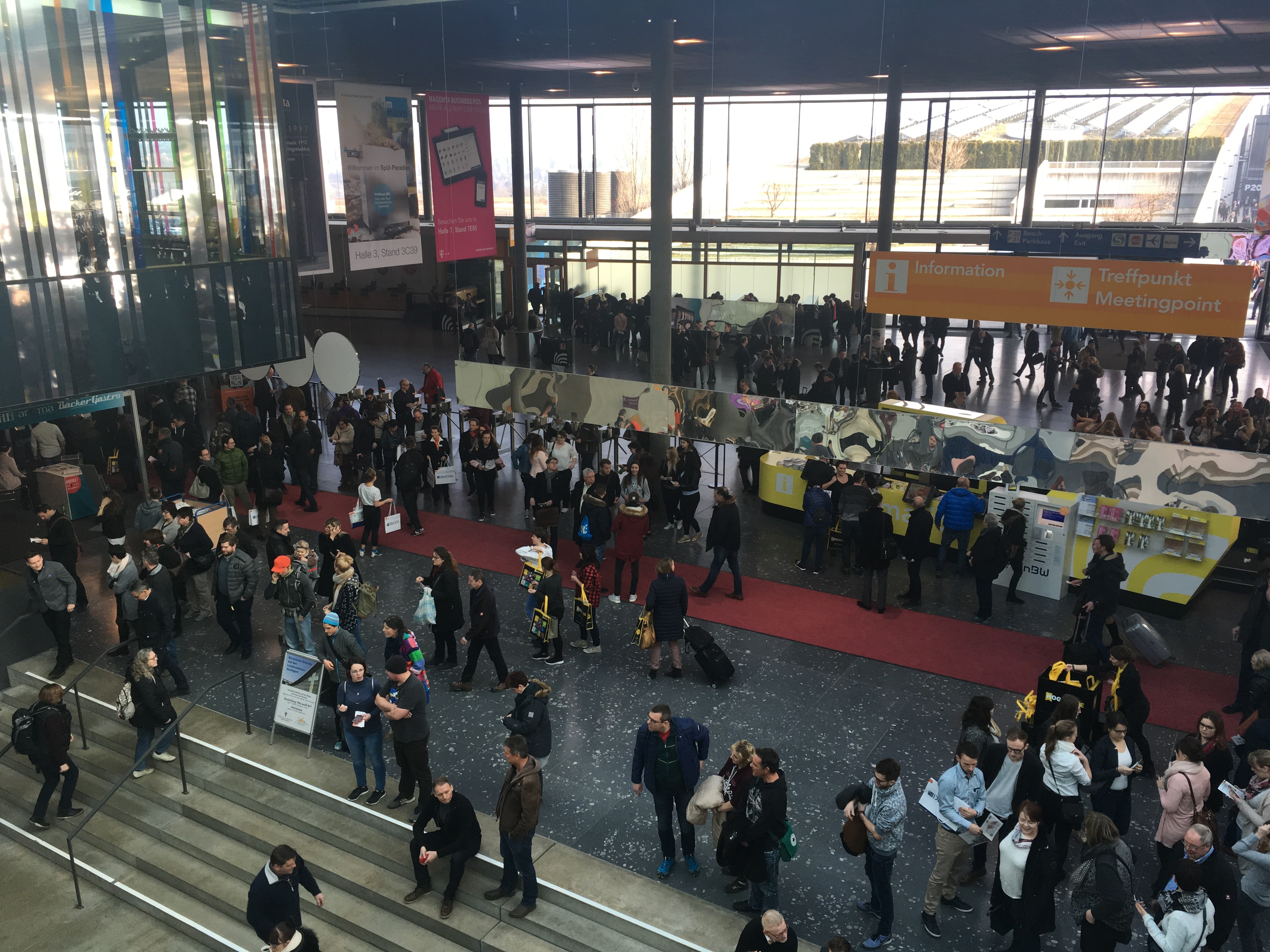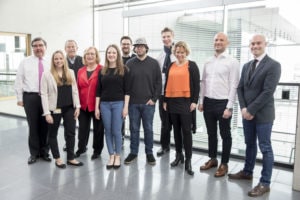
One of the more striking observations of the profile of the approximate 100,000 visitors attending Intergastra 2018 this year was the sheer quantity of young people among the crowds. Everywhere one seemed to look across the 115,000 m² of halls of Messe Stuttgart, students and Generation Z/Millennial foodservice professionals blended seamlessly with the Gen Xers and Baby Boomers perhaps more typically associated with major food shows.
Energy and enthusiasm
The youth were here in numbers and the show was all the more buoyed by their energy and enthusiasm for the industry, which served to make the focus of FCSI’s roundtable at the show, ‘Working with Millennials’, all the more apposite and timely.
The roundtable, which featured experienced German consultants Hildegard Dorn-Petersen FCSI, Martin Rahmann FCSI (the new president of FCSI Worldwide), Bettina von Massenbach FCSI and Erhard Trotter FCSI, as well as celebrated investor and restaurateur Philipp Ghadri (The Bird) also represented young professionals through award-winning young chef Marcus Beran, Marius Zürcher and Maike Nuyken of Dutch start-up 1520 and Anna Hammer and Patrick Dehner of show organisers Landesmesse Stuttgart.
Taking place on Tuesday 6 February, the penultimate day of the show, the roundtable addressed the challenges operators face in attracting Millennials as customers, but perhaps more importantly the huge opportunities the demographic can present to the sector when they are engaged with effectively.
It was an enlightening and insightful event, the full write-up of which will be in the Q2 (May 2018) print edition of Foodservice Consultant magazine.
Relevant brands
Taking place every two years, and organised by Landesmesse Stuttgart GmbH, Intergastra is considered one of the most important international trade fairs in Europe for the gastronomy and hospitality sector and, with approximately 1,400 exhibitors in attendance, is the largest meeting event for the industry in Germany. The show, this year held between 3-7 February, focuses on foodservice and kitchens, equipment and ambience, beverages, hotels, coffee and ice cream.
“Intergastra is such an important show for the hotel and gastronomy industry because you can find all relevant brands in one place,” says Dehner, project manager business development for Landesmesse Stuttgart.
“Every two years Stuttgart turns into the industry’s meeting place where innovations in the field of hotel and gastronomy are launched and presented.
“My personal highlight is Newcome@Intergastra, a cool and stylish start-up area where you can find and even taste products that cannot be found on the market yet. From a professional point of view I am amazed how digitization and the internet of things (IoT) have reached the industry, for example connected coffee machines that are ready for smart and predictive maintenance,” says Dehner.
Dehner’s colleague Anna Hammer agrees the Newcome@Intergastra area in the food hall was a highlight this year. “I really find it interesting to observe upcoming trends and young start-ups that present their new products on our platform,” she says.
“Intergastra is very important for Messe Stuttgart because it is one of our biggest and most successful shows. Gastronomy is interesting to a huge amount of people. There are especially a lot of young visitors who have a leading role for us in order to attract Millennials and make them familiar with the trade fair concept,” says Hammer.
Special charm
For Hildegard Dorn-Petersen FCSI, Intergastra is an important show because it offers “a wide selection of exhibitors in the hospitality industry in a well-structured location. I have met a lot of interesting people. In addition, this fair has a very special charm – the setting of halls around the park-like courtyard, the large glass surfaces that let in the sun, and the people. The exhibition team, from top down, are always in a good mood, even on busy trade fair days,” she says.
For Dorn-Petersen, the event’s ‘Night of the Stars’ Gala in Stuttgart’s Daimler Museum “was a great event, but the roundtable, which brought me sustainable insights, was the absolute highlight for me.”
Consultant Bettina van Massenbach FCSI feels Intergastra offers “the opportunity to meet relevant experts throughout the industry and to exchange latest developments”. For von Massenbach, there were several highlights from the show, including seeing “fantastic new organic products” and discovering that concerted efforts from the industry to improve “the attractiveness of the hospitality sector” to young people are now bearing fruit and “showing the first results” in making it easier to hire Millennials.
Positivity
The show was a success for exhibitors too, who, certainly from our anecdotal evidence, felt the show combined a high quantity of footfall with quality leads.
“Intergastra has grown and the new hall concept with kitchen equipment in halls 1, 3 and 5 underlines the importance of equipment. Additionally, the supporting programme attracted many visitors and rounded off a perfect trade show for us as exhibitors,” says Claudia Bußmann, marketing manager for Eloma GmbH, who was delighted with the Eloma booth’s “pole position in hall 3” which was able to showcase an “open, emotional and friendly design”.
“We love the opportunity to meet regional end-customers and dealers, both partners and potential new ones from Southern Germany, Switzerland and Austria, especially because Intergastra is a bi-annual show. The set up and the conception of the show was very positive, as well as seeing new and known faces,” she says.
Michael Jones
Pictured: Martin Rahmann, Anna Hammer, Erhard Trotter, Hildegard Dorn-Petersen, Maike Nuyken, Patrick Dehner, Marius Zürcher, Marcus Beran, Bettina von Massenbach, Philipp Ghadri and Michael Jones

